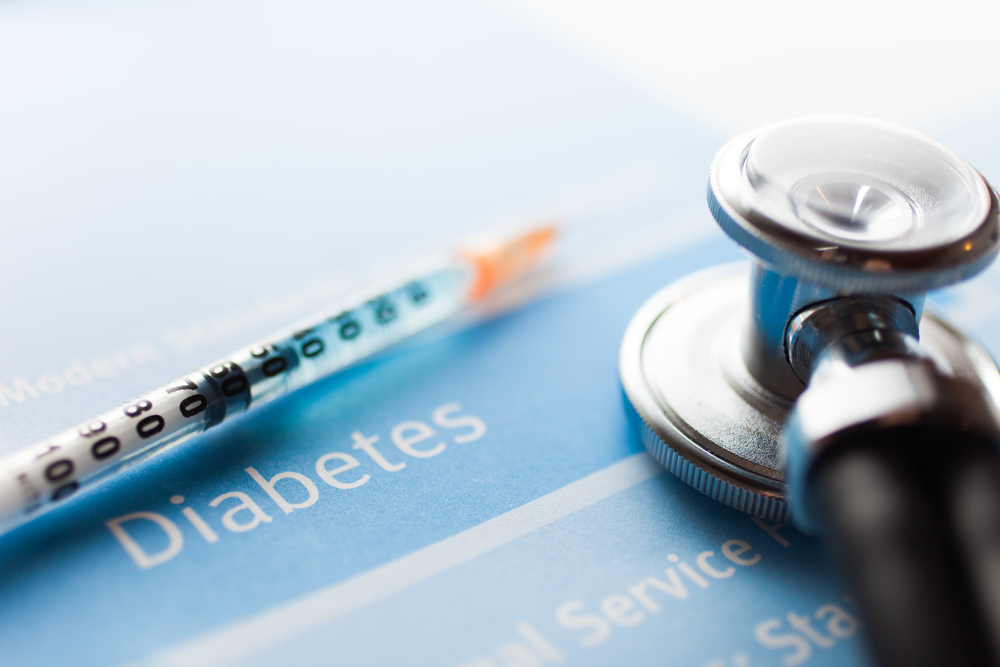World Diabetes Day 2022 – 6 Tips to Prevent Diabetes

Diabetes Mellitus, or Diabetes, is a chronic metabolic condition that affects millions of people across the globe every year. November is observed as world diabetes awareness month which makes it the perfect time to educate and spread awareness about diabetes, types of diabetes, and how to prevent it. Uncontrolled and unmanaged diabetes harbours the birth of other serious health issues like vision problems, kidney issues, heart disease, stroke, and more.
Before getting diagnosed with diabetes, there is a stage where your blood sugar levels are high but not alarming enough to be labelled as a diabetic. That is called the prediabetes stage. It is the prediabetes stage where one has to chin up and act before it gets too late. Progressing from prediabetes to the diabetes stage takes time and it is that window where you can make certain dietary and lifestyle modifications to prevent or delay it.
This world diabetes day, let’s learn 6 ways to prevent or lower your risk of getting diabetes:
- Limit Your Carbohydrate Intake
The kind of carbohydrates you consume and the number of carbs have an important and direct effect on your metabolic health along with your probability of getting diabetes. Improving the quality of carbs you consume and limiting the dietary intake of carbs is one of the most important factors to consider when making nutritional choices in your diet.
When you consume carbs, your body breaks them down into smaller sugar molecules which then get immersed in your bloodstream. If you keep consuming a high on carb diet, the corresponding rise in your blood sugar pushes your pancreas to produce more insulin which then leads to prediabetes and diabetes inadvertently.
Certain food items like sodas, candy, chocolate, desserts, pasta, white bread, and sweetened breakfast cereal are high in added sugars. Limit the intake of such items and switch to carbs that are high in fibre along with non-starchy vegetables like broccoli and mushrooms. Switch to whole grains, oatmeal, and multi-grain options as a healthy alternative and control your blood sugar levels.
- Ditch the Sedentary Lifestyle & Be More Active
Being more physically active is probably the first advice everyone gets when they want to lead a healthy lifestyle. Staying active, ditching a sedentary lifestyle, and exercising regularly are important for losing weight, lowering blood sugar levels, and boosting insulin sensitivity/resistance that keeps your blood sugar levels within normal range. Multiple physical activities have been proven to improve your body’s insulin resistance and lower down blood sugar levels in prediabetics and diabetics. Some of the most effective exercises to prevent and manage diabetes include aerobics, HIIT (High-Intensity Interval Training), and strength training.
If you’re a beginner, start with just 10 minutes of brisk walking a day or an aerobic session with a gradual aim of up to 150 minutes a week.
- Make Water Your Primary Beverage
Sticking to drinking water as your primary beverage throughout the day will help you refrain from and control your urge to consume sugary drinks. Carbonated beverages that are high in sugar and packed drinks and juices are known to increase blood sugar levels.
Consuming water throughout the day is proven to have better blood sugar management and insulin regulation in the body. So, the next time when you sweat it out in the sun, make sure you always keep a bottle of water within arm’s reach to avoid giving in to consuming sodas.
- Shed Extra Weight
Losing weight and staying within your BMI range is one of the most important factors when it comes to reducing your risk of getting diabetes. Those in the prediabetes stage are advised to lose at least 7 to 10% of their body weight to halt the disease progression. Any further weight loss is only going to strengthen your chances of diabetes prevention or delay.
Talk to your doctor or nutritionist and set a weight loss goal based on your current body weight, existing medical conditions, and dietary habits. Set a reasonable short-term goal that is practical and easy to achieve, such as losing 3-4 kgs a month.
- Switch to a Healthy, Plant-Based Diet
Plants are one of the most vital sources of all nutrients we need – vitamins, minerals, and carbohydrates. Carbohydrates further include sugar and starch which are the energy powerhouse sources for your body. Dietary fibre, also called roughage, is a difficult-to-digest part of plant food that often remains undigested.
To lower the risk of getting diabetes and losing weight, it is highly recommended to switch to plant-based foods that are high in fibre. Fibre-rich foods assist in slowing down sugar absorption in the body and helps maintain controlled blood sugar levels. It helps interfere with the dietary absorption of fat and cholesterol and manages the associated risk factors like high blood pressure and inflammation. Fibre-rich foods also help in a way with weight loss since they are filling and it help you eat less.
Some of the best fibre-rich foods are:
- Fruits like tomatoes, peppers, and the fruits grown on trees
- Vegetables with no starch content like green leafy vegetables, broccoli, cauliflower, and mushrooms
- Legumes like chickpeas, beans, and lentils
- Whole grains and food items made with whole grains like pasta, whole/multi-grain bread, rice, oats, and quinoa
- Quit Smoking
Several studies have linked smoking to contribute to multiple health issues like heart disease, Chronic Obstructive Pulmonary Disease (COPD), diabetes, and lung and intestinal cancers. While the studies still don’t have a potent conclusion, it is believed to spike insulin resistance and interfere with insulin secretion.
Smoking, specifically heavy smoking, is linked to getting an increased risk of diabetes compared to those who are light smokers or don’t smoke at all. Quitting smoking or reducing the number of fags a day has been proven to reduce the risk of diabetes.






